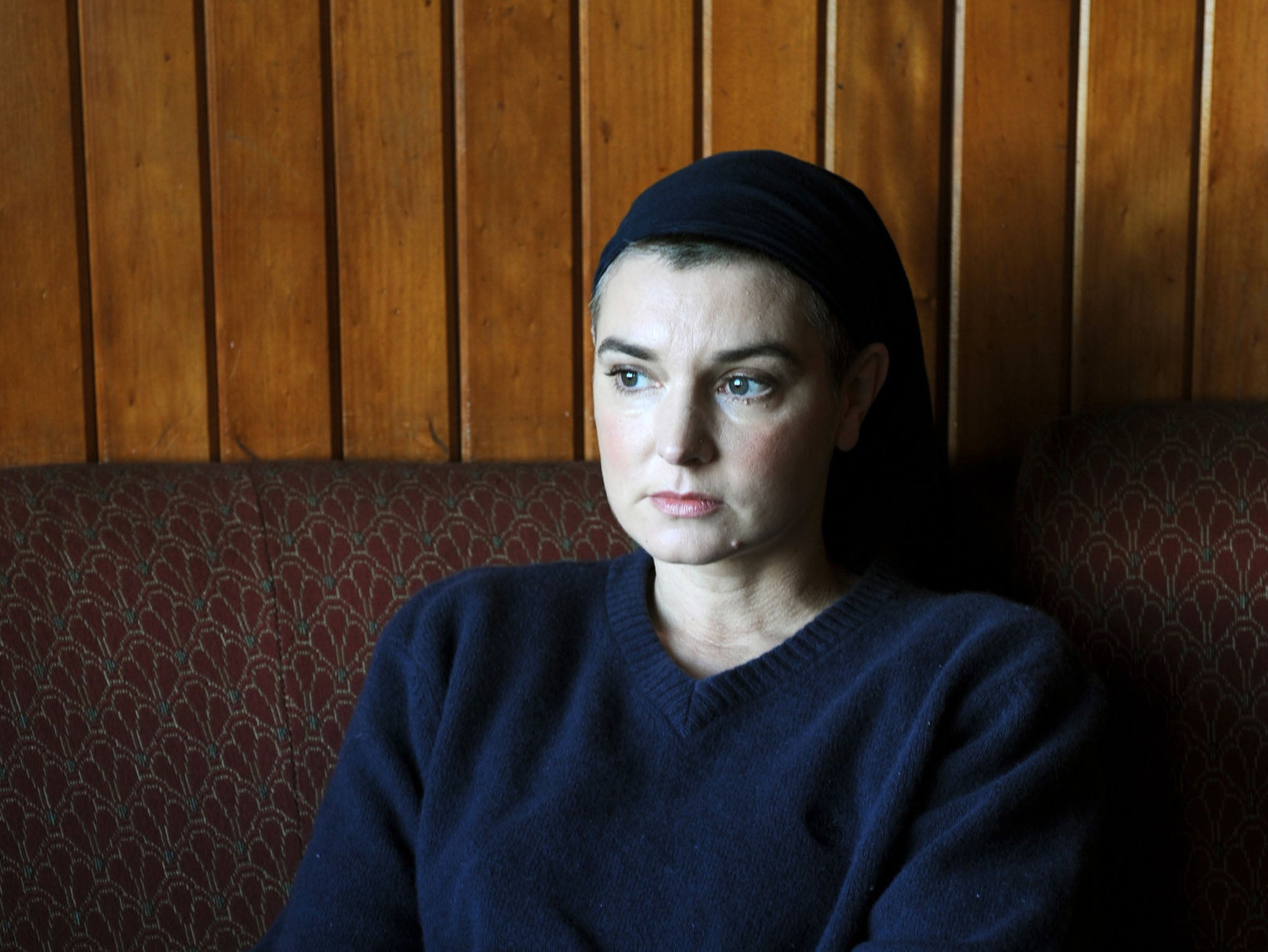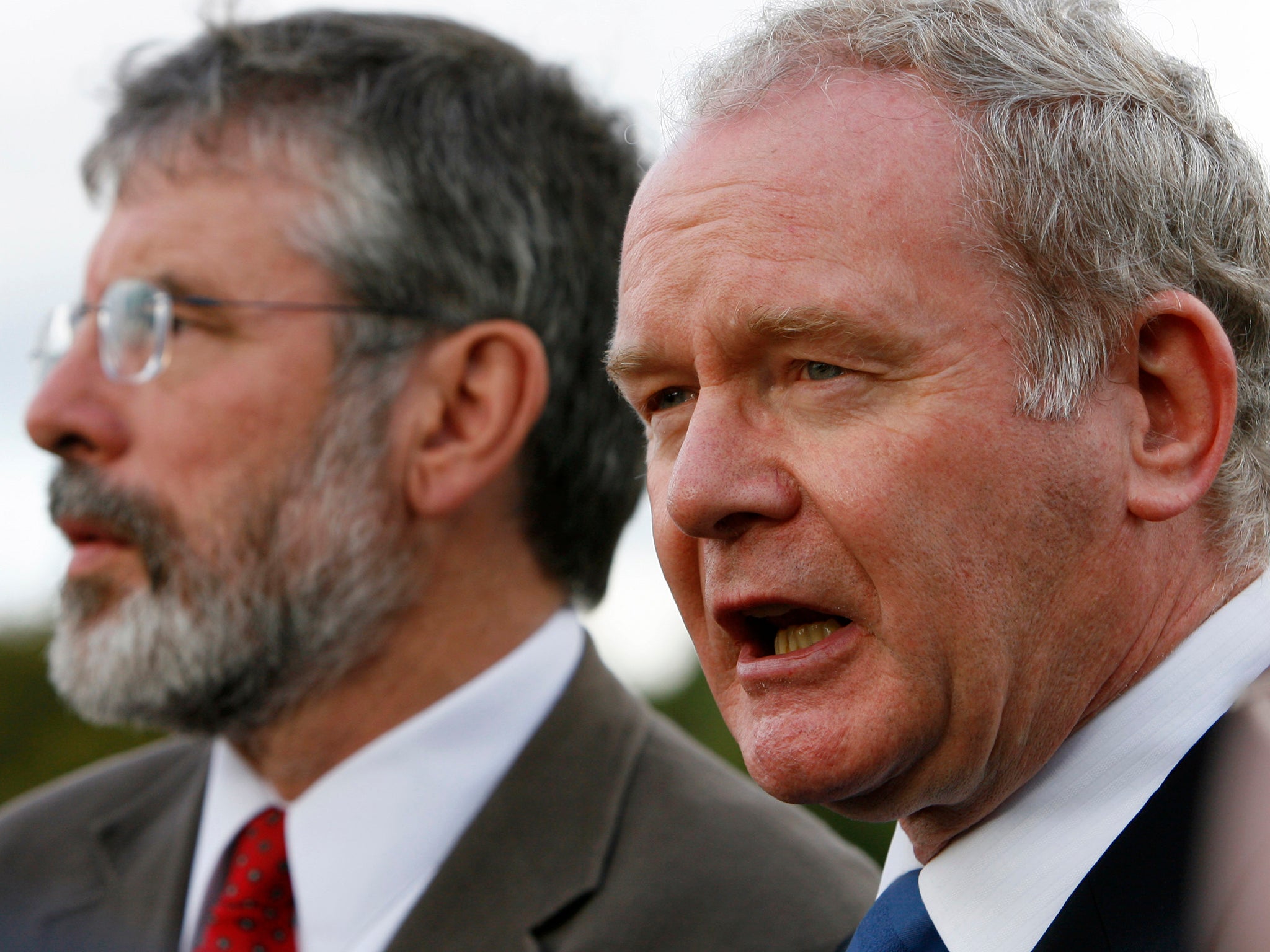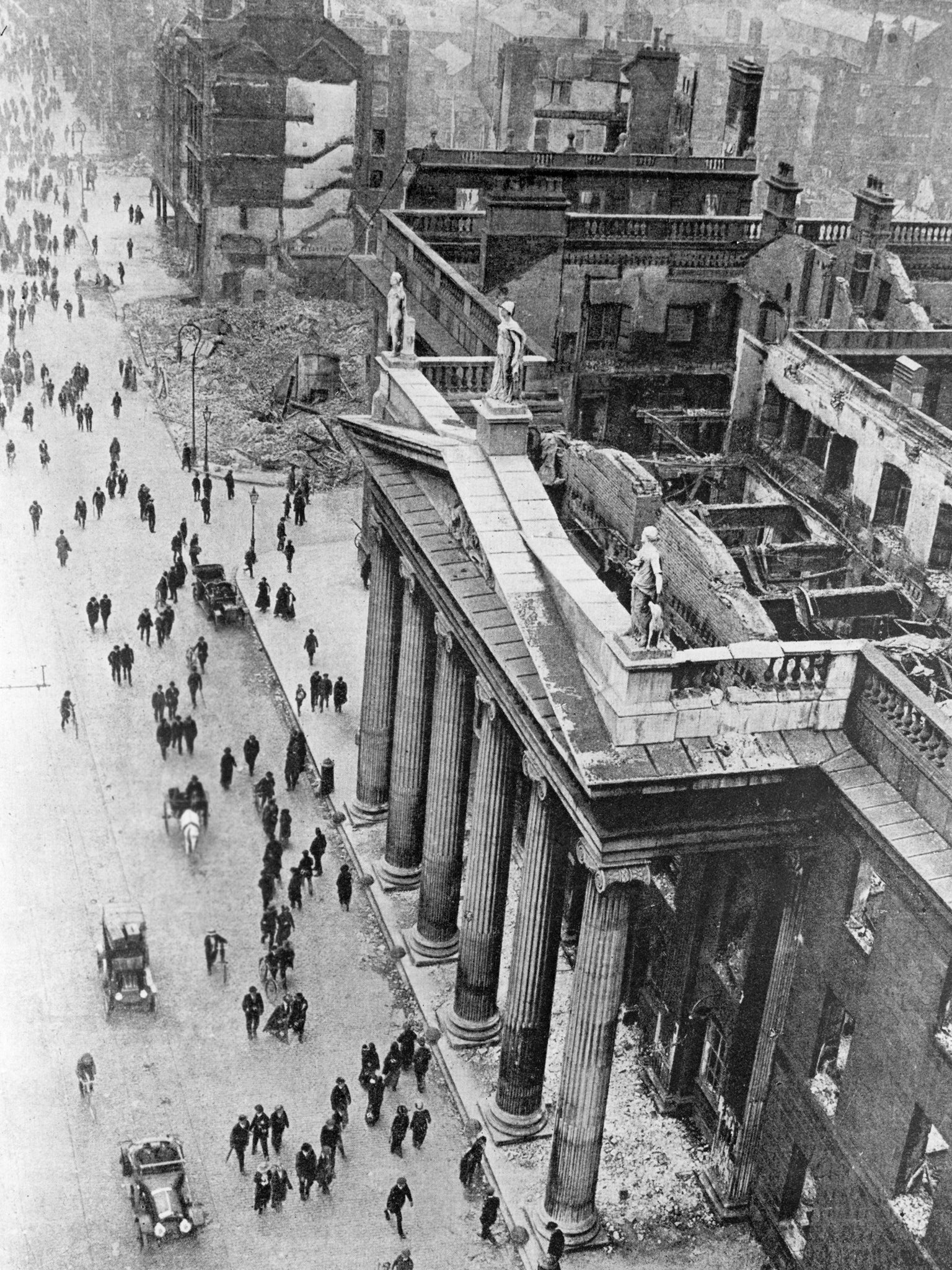Sinead O'Connor calls for 'demolition of the Irish Republic' and the birth of a new country
The artist spoke to The Independent exclusively about her application to join Sinn Féin and change Irish democracy for good

Your support helps us to tell the story
From reproductive rights to climate change to Big Tech, The Independent is on the ground when the story is developing. Whether it's investigating the financials of Elon Musk's pro-Trump PAC or producing our latest documentary, 'The A Word', which shines a light on the American women fighting for reproductive rights, we know how important it is to parse out the facts from the messaging.
At such a critical moment in US history, we need reporters on the ground. Your donation allows us to keep sending journalists to speak to both sides of the story.
The Independent is trusted by Americans across the entire political spectrum. And unlike many other quality news outlets, we choose not to lock Americans out of our reporting and analysis with paywalls. We believe quality journalism should be available to everyone, paid for by those who can afford it.
Your support makes all the difference.Sinead O'Connor has said she wants to see the Irish republic disbanded and replaced with a wholly new country that unites greater Ireland and banishes its violent past to the history books.
The 'Nothing Compares 2 U' singer spoke to The Independent following her announcement that she had applied to join Sinn Féin.
She called on Gerry Adams and other key figures in the party to stand down because their faces were forever shrouded in the country's bloody history.
"When you see the faces of Gerry Adams and Martin McGuinness and all of these people, they remind people of violence," she said.
"Long term down the line, if these guys were to step down, Sinn Féin membership would quadruple overnight and people would be on board for changing the country, changing what it means to be a republican."
Criticising the current state of Ireland, O’Connor continued: "We can do better than having a new republic; we can have a new country. I think that's a good way of solving all of the problems of the past. The best thing would be to declare the entire thing a failure and dissociate ourselves from Ireland, England, Northern Ireland and Europe. I'm talking about a new country.

"I'm interested in joining Sinn Féin because it's time to start talking about a new country. If the loyalists and the republicans were to get together and fight on our side, we could create something much better than anything anyone’s ever dreamed of before, which would be a new country that is completely independent from anybody."
O'Connor recently claimed that she was sexually molested by a member of Sinn Fein in a letter to Maira Cahill, a Belfast woman who said she was raped by an alleged IRA figure in 1997. O'Connor and Cahill spoke last weekend after Cahill voiced her disappointment that O'Connor had applied to join the party.
O'Connor told The Independent that she experienced "a series of molestations" by a member of Sinn Féin but that she was not raped. She stressed that the event had no bearing on her opinion of the party because "paedophiles are not defined by what they do for a living or what political party they are involved with" and that "the perpetrator would have been a perpetrator whether he was a member of Sinn Féin or not".
She added: "It has been falsely reported in the Irish papers that Sinn Féin tried to cover that up. That's not true. I did report to Sinn Féin, I only reported it a few months ago when it came up in therapy. It didn't occur to me to report it before. Certainly, no attempt was made by Sinn Féin to cover it up."
In response to O'Connor, the party said in a statement: "Sinn Féin takes all allegations of abuse very seriously, and have robust procedures in place to deal with these allegations. The Sinn Féin approach to all allegations of abuse is based on safeguarding children and supporting victims.
"Any information regarding allegations of abuse needs to be brought to the gardai and Tusla. We would also encourage any victim of abuse to come forward to access support and services."
Describing why she wanted to become a member of the party, O'Connor said she wants to see the 1916 Declaration of the Republic honoured. The document was written by Irish revolutionaries during the Easter Rising in 1916 and proclaimed Ireland’s independence from British rule.
The rising was suppressed and most of the participants executed by the British. Yet the event brought republicanism to the fore of Irish politics and led to the election of 73 Sinn Féin MPs in the 1918 election. They refused to take their seats in Westminster, eventually resulting in the Irish War of Independence that paved the way for the Anglo-Irish Treaty of 1921.
O'Connor contends that paragraphs three and four of the 1916 Proclamation, which call for a country that "guarantees religious and civil liberty, equal rights and equal opportunities of all its citizens", have not been met by the current republic.
"We don't have ownership of the resources of the country; we don't really own the country at all," she said. "All of the people of the nation are not being treated equally; there are no civil rights anymore. The people don't own Ireland, they are broken and on their knees.
"The people who died in 1916 in order to set up what is now the republic of Ireland didn't do so, so that the people could end up in the condition that they are now in."
The Anglo-Irish treaty led to the Irish Civil War as republicans split between those in favour of becoming the Irish Free State, independent from the United Kingdom but within the British Empire, and those who wanted a fully republican state. The Free State forces won, although Ireland declared itself as a republic in 1949.
The legacies of the Civil War are still felt in Ireland as two of the main political parties, Fianna Fáil and Fine Gael, are descended from the opposing sides in the war. O’Connor argues that such parties – including Sinn Féin – need to eventually be destroyed.
O'Connor said that she wanted to join Sinn Féin to bring it back to its 1916 ideals rather than the violence with which it has been associated since the Troubles, arguing that "When you see the faces of Gerry Adams and Martin McGuinness and all of these people, they remind people of violence".
Speaking of the Rising once more, she said: "We need to finish it; it never ended. All our political parties are still from that time; it's Civil War political parties. Fine Fail, Fine Gael, Sinn Féin; they all have to go ultimately. To understand why we are in the situation we are now in, we need to understand how we got there. I think we haven't understood that we’re still living in the fallout of 1916 and that it hasn't finished."
She called on Irish republicans working with those in Northern Ireland to create a new country.

"Not a republic of Ireland which by its nature would be something that excluded the very important contents of the six counties. We in the Free State need those people, we need their help, we need all of the loyalists in those counties to help us in the Free State. They've never been offered that opportunity before. Nobody has come up with an idea that might satisfy everyone where no one loses pride, no one loses face."
A response from the party about O'Connor's comments on the leadership read: "The Sinn Féin membership elects its leadership every year at its Ard Fheis. Members are free to nominate and vote for the leader of their choice. As a member, Sinead would have an equal say in that process.
"Sinead O'Connor is not currently a member of Sinn Féin, though she has applied for membership of the party."
O'Connor said that she did not necessarily expect her application for membership to be accepted "because I'm saying the things that I'm saying".
Join our commenting forum
Join thought-provoking conversations, follow other Independent readers and see their replies
Comments